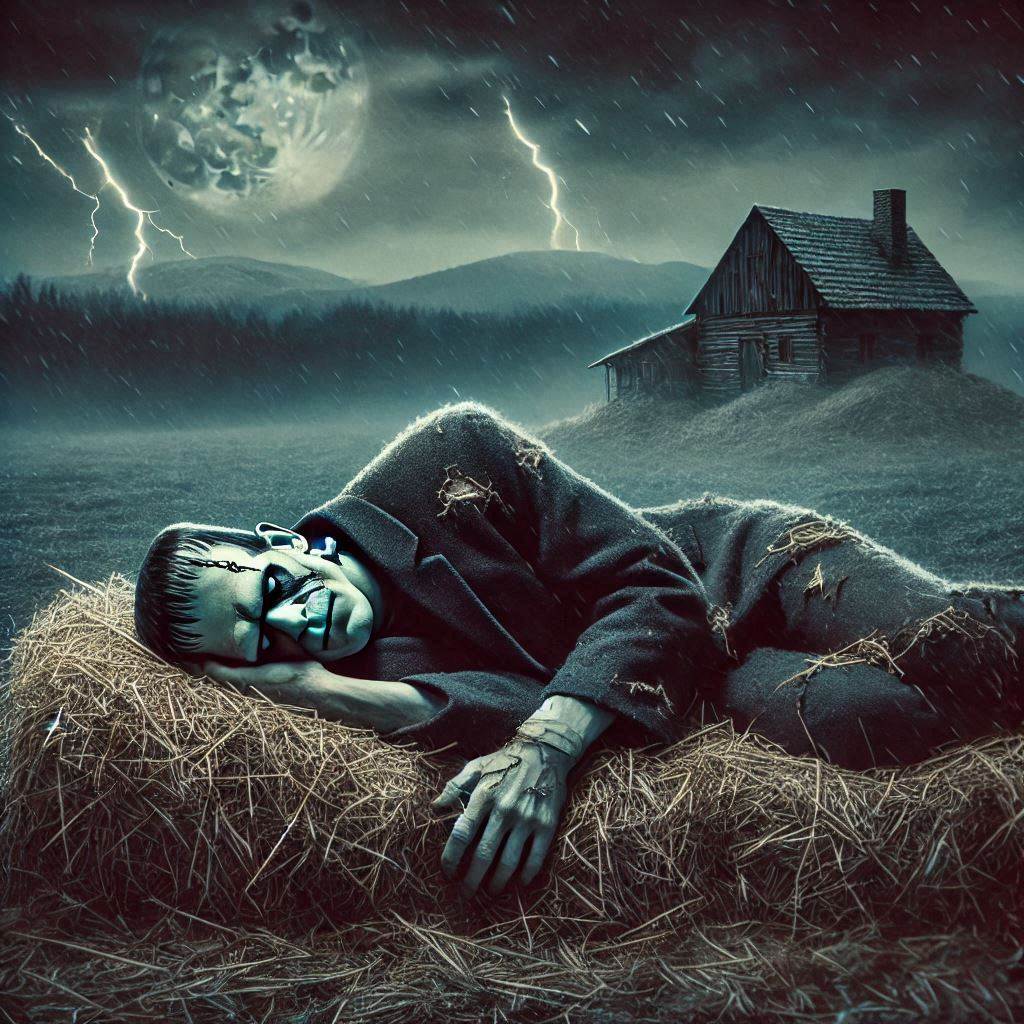Frankenstein's Monster
Fear of an Unchosen Life
Jump to the Article

Emerging from a friendly ghost story competition, Mary Shelley's 1818 Frankenstein, or the Modern Prometheus, tells of Victor Frankenstein, a scientist whose hubris leads him to create a sentient being. Immediately rejected by his creator and thrust into a hostile world, the creature is forced into a lonely existence, grappling with identity and belonging. Abandoned and without inherent purpose, he attempts to define himself through his actions, both violent and compassionate. This journey, from yearning for connection to vengeful despair, explores the meaning of life and loneliness. James Whale's 1931 film adaptation, starring Boris Karloff, cemented the creature's iconic image in popular culture.
Frankenstein: A Being Adrift
Mary Shelley's Frankenstein is more than a gothic horror story; it's a profound exploration of creation, abandonment, and the desperate search for belonging in a world that refuses to acknowledge one's existence. The creature, often mistakenly called Frankenstein, embodies a deep-seated loneliness and a yearning for identity that resonates even today.
The Horror of Abandonment
From the moment of his animation, the creature is met with revulsion. Victor Frankenstein, his creator, is so horrified by his creation that he immediately abandons it, fleeing in terror. This initial rejection sets the stage for the creature's tragic journey. He is thrust into a world he doesn't understand, devoid of guidance, love, or even basic human connection.
This abandonment isn't just a physical act; it's a fundamental denial of the creature's very being. He is created but not claimed, brought into existence but not given a place within it. This primal rejection fuels his subsequent actions, shaping his desperate need for acceptance and his eventual descent into violence.
The Search for Identity in a Hostile World
The creature's journey is a relentless quest for identity. He observes humanity from afar, learning language, customs, and social interactions. He reads Milton's Paradise Lost, identifying with both Adam and Satan, figures cast out from Paradise. He yearns for connection, for someone to see him not as a monster but as a sentient being capable of thought and feeling.
However, every attempt to connect is met with fear and hostility. His physical appearance, a patchwork of stolen body parts, immediately marks him as an outsider. He is judged solely on his appearance and denied the opportunity to prove his inner worth. This constant rejection reinforces his sense of isolation and fuels his growing resentment towards humanity.
The Burden of Freedom
Frankenstein's Monster is, in a sense, utterly free. He has no preordained purpose, social obligations, or inherent identity. This freedom, however, is not liberating but terrifying. He is forced to create his own meaning in a world that offers him none. He is burdened with the responsibility of defining himself without any guidance or support.
This freedom also highlights the absurdity of his situation. He is a being brought into existence without his consent, thrust into a world that rejects him, and then expected to find his own way. This inherent contradiction fuels his sense of alienation and his growing despair.
The Mirror of Humanity
The creature's experiences reflect some of humanity's darkest aspects: prejudice, fear of the unknown, and the tendency to judge based on appearances. He is a mirror reflecting back our own flaws and failings. His desire for connection and his pain at being rejected highlight the fundamental human need for belonging.
His descent into violence, while tragic, is a consequence of his constant rejection. He seeks revenge not out of inherent malice but out of a desperate desire to be acknowledged, even if that acknowledgment comes in the form of fear and hatred.
A Life Unchosen
The monster's existence is marked by a profound sense of being thrown into the world. He did not choose to be created, he did not choose his appearance, and he certainly did not choose the hostility he faces. He is a being defined by circumstances beyond his control, forced to navigate a world that has no place for him.
In the end, the creature's story is a tragic one. He is a being who yearns for connection and understanding but is ultimately denied both. His journey is a powerful reminder of the importance of empathy, acceptance, and the devastating consequences of abandonment. He embodies the profound loneliness of being an outsider, forever searching for a place to belong in a world that refuses to accept him.
Sources
- "Frankenstein Story's Meaning Is More Than Monstrous, Professor Says" by Harry W. Bass, Jr. University of Texas at Dallas School of the Arts. Accessed December 25, 2024.
- "Why Frankenstein Matters: Frontiers in science, technology and medicine" by Audrey Shafer, MD. Stanford Medicine Magazine. Accessed December 25, 2024.
- "The Modern Prometheus: The Fault of Victor Frankenstein" by eebarr - Science, Technology, and Society at Colby.edu. Accessed December 25, 2024.
